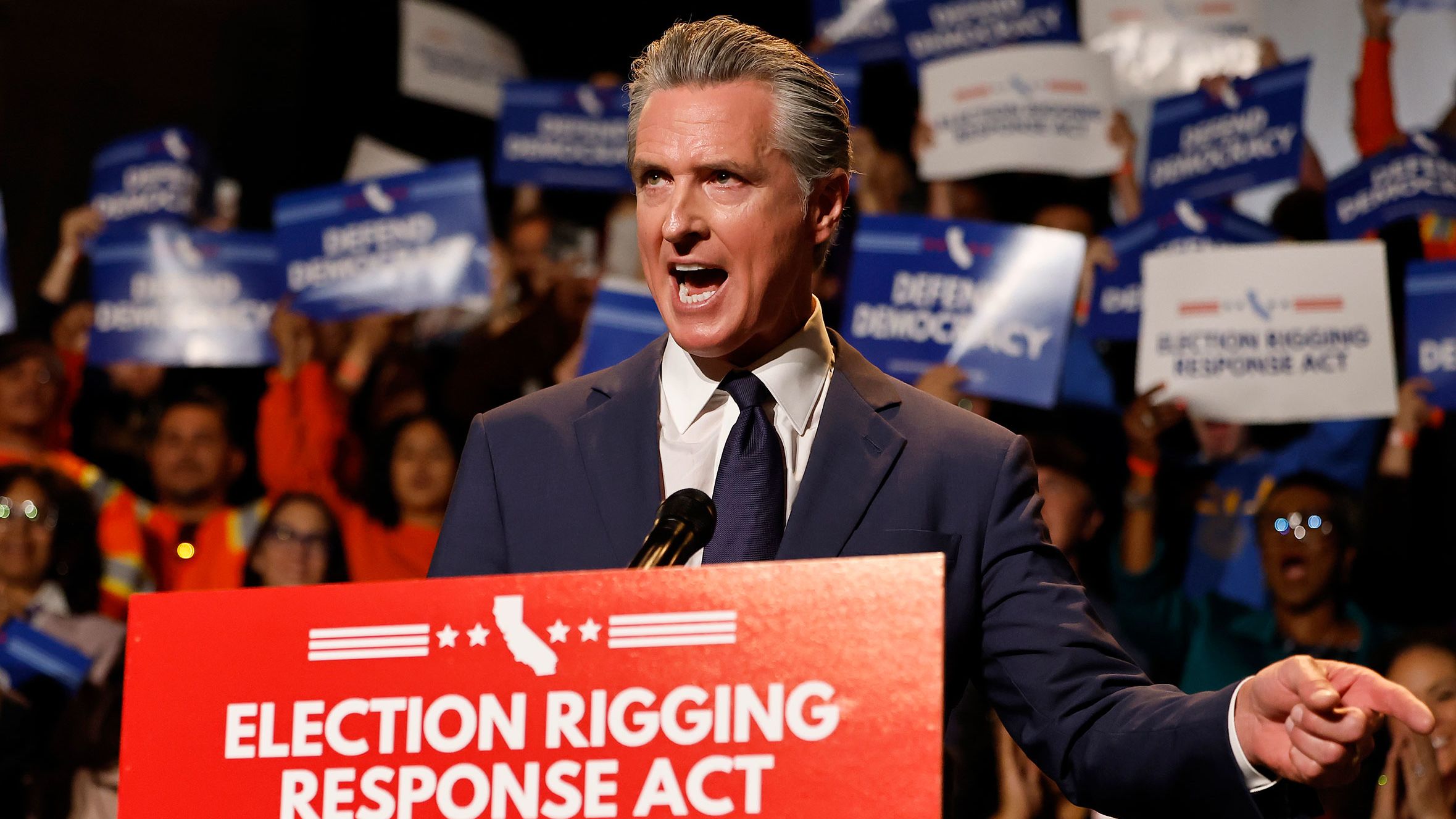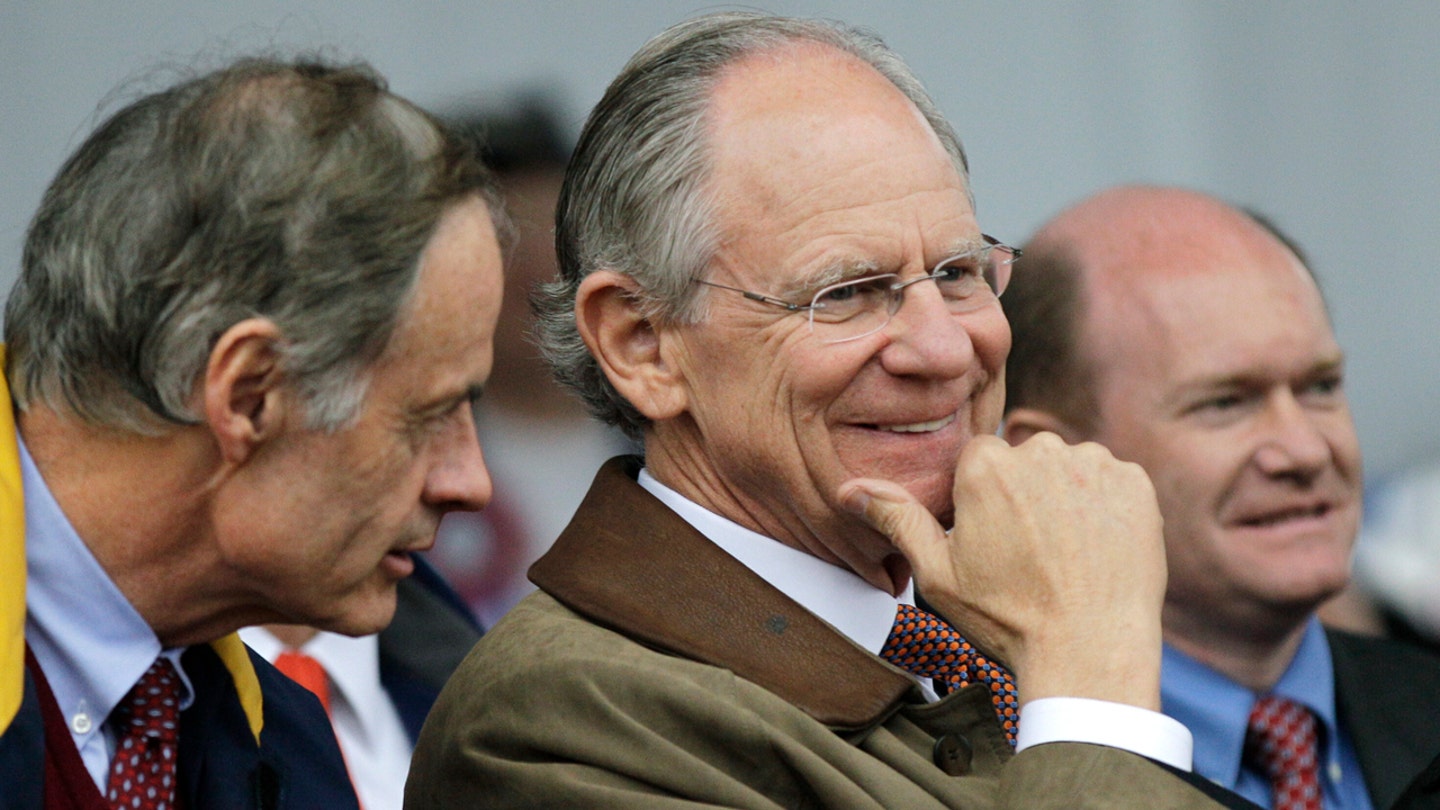
Exclusive: Oklahoma to begin controversial test to weed out ‘woke’ teacher applicants today
Entities mentioned:
- Ryan Walters: Control, Righteousness, Moral outrage
- PragerU: Influence, Righteousness, Power
- Oklahoma State Department of Education: Control, Loyalty, Righteousness
- Jonathan Zimmerman: Professional pride, Wariness, Curiosity
- Marissa Streit: Influence, Righteousness, Professional pride
- John Waldron: Indignation, Professional pride, Duty
- Donald Trump: Power, Influence, Recognition
Article Assessment:
Credibility Score: 65/100
Bias Rating: 55/100 (Center)
Sentiment Score: 30/100
Authoritarianism Risk: 70/100 (Authoritarian Tendencies)
Bias Analysis:
The article presents multiple viewpoints, including critics of the assessment, but gives more space to Walters' perspective. The framing suggests skepticism towards the assessment, but attempts to maintain a balanced approach.
Key metric: Education Quality and Teacher Retention
As a social scientist, I analyze that this controversial assessment for teacher applicants in Oklahoma represents a significant shift in the politicization of education. The use of PragerU, a conservative media company, to develop this assessment raises concerns about the objectivity and educational validity of the test. This move could potentially impact teacher recruitment and retention, especially for those from more liberal states, potentially exacerbating Oklahoma's existing teacher shortage. The assessment's focus on ideological alignment rather than pedagogical skills or subject matter expertise may have long-term implications for the quality of education in the state. Furthermore, this development signifies a broader trend of injecting partisan politics into educational policy, which could lead to increased polarization in the education system and potentially limit diverse perspectives in classrooms.

American history won't be displayed 'in a woke manner' at Smithsonian, Trump says
Entities mentioned:
- Donald Trump: Control, Patriotism, Legacy
- Smithsonian Institution: Professional pride, Duty, Obligation
- Stephen Miller: Righteousness, Loyalty, Patriotism
- JD Vance: Control, Duty, Patriotism
- White House: Control, Influence, Legacy
Article Assessment:
Credibility Score: 70/100
Bias Rating: 65/100 (Lean Right)
Sentiment Score: 35/100
Authoritarianism Risk: 65/100 (Authoritarian Tendencies)
Bias Analysis:
The article leans slightly right, giving more space to Trump administration views and using terms like 'woke' without critique. However, it does include some balance by quoting the Smithsonian's response and mentioning opposing viewpoints.
Key metric: National Unity
As a social scientist, I analyze that this article highlights a growing tension between political ideology and historical representation in national institutions. The Trump administration's push for 'fair' and 'accurate' representation of American history at the Smithsonian appears to be an attempt to reshape the narrative of national identity. This intervention in cultural institutions could significantly impact national unity by potentially polarizing public opinion on how American history should be presented. The administration's focus on 'American exceptionalism' and removal of 'divisive narratives' suggests a desire to promote a more positive, patriotic view of American history, which could either unite or divide the population depending on individual perspectives on historical interpretation.

Social Security stronger under Trump, critics pushing ‘false’ narrative, commissioner says
Entities mentioned:
- Donald Trump: Power, Legacy, Self-preservation
- Frank Bisignano: Loyalty, Professional pride, Righteousness
- Democrats: Moral outrage, Control, Unity
- Social Security Administration: Duty, Efficiency, Security
- Joe Biden: Competitive spirit, Control, Legacy
Article Assessment:
Credibility Score: 55/100
Bias Rating: 75/100 (Lean Right)
Sentiment Score: 70/100
Authoritarianism Risk: 35/100 (Generally Democratic)
Bias Analysis:
The article heavily favors the Trump administration's perspective, primarily quoting the Social Security commissioner appointed by Trump. It lacks opposing viewpoints or independent expert analysis, presenting a one-sided narrative that aligns with right-leaning political views.
Key metric: Social Security System Efficiency
As a social scientist, I analyze that this article presents a defense of the Trump administration's management of Social Security, countering criticisms from Democrats. The key points revolve around improved efficiency through technology adoption, reduced wait times, and cleared backlogs. The commissioner, Frank Bisignano, argues that critics are pushing a false narrative due to political motivations. The article suggests a significant transformation in Social Security operations, moving from a check-based system to a more technologically advanced one. However, the strong partisan tone and lack of opposing viewpoints raise questions about the balanced representation of the issue. The emphasis on operational improvements without addressing long-term sustainability concerns presents a potentially incomplete picture of Social Security's overall health.

All eyes on Washington, and naught but deafening silence from the District's loudest defender
Entities mentioned:
- Eleanor Holmes Norton: Duty, Justice, Determination
- David Dreier: Control, Power, Influence
- Donald Trump: Power, Control, Influence
- Muriel Bowser: Duty, Self-preservation, Indignation
- Chris Van Hollen: Justice, Moral outrage, Duty
- Brandon Scott: Duty, Justice, Indignation
- Phil Mendelson: Loyalty, Wariness, Duty
- Hakeem Jeffries: Unity, Loyalty, Self-preservation
- Kinney Zalesne: Ambition, Justice, Competitive spirit
Article Assessment:
Credibility Score: 75/100
Bias Rating: 45/100 (Center)
Sentiment Score: 35/100
Authoritarianism Risk: 55/100 (Mixed/Neutral)
Bias Analysis:
The article presents multiple perspectives and quotes from various political figures, maintaining a relatively balanced approach. While it raises questions about Norton's recent inactivity, it also provides context and historical background, avoiding overtly partisan language.
Key metric: Democratic Representation
As a social scientist, I analyze that this article highlights a critical juncture in Washington D.C.'s struggle for full representation and local autonomy. The absence of Eleanor Holmes Norton's typically forceful advocacy during a time of federal intervention in local affairs underscores the precarious position of D.C.'s governance. This situation exemplifies the ongoing tension between federal control and local self-determination in the District, impacting the key metric of Democratic Representation. The deployment of federal forces without local consent and the relative silence of D.C.'s primary congressional advocate raise significant questions about the balance of power and the effectiveness of non-voting representation. This event may serve as a catalyst for renewed discussions on D.C. statehood and the broader implications for democratic representation in the U.S. political system.

Federal courts go old school to paper filings after hack to key system
Entities mentioned:
- Federal Courts: Security, Duty, Professional pride
- Stanley Bastian: Security, Duty, Professional pride
- Cecilia Altonaga: Security, Duty, Professional pride
- Mark Davis: Security, Duty, Professional pride
- George Russell III: Security, Duty, Professional pride
- Administrative Office of the US Courts: Security, Duty, Professional pride
- Kremlin: Power, Control, Influence
- President Donald Trump: Pride, Competitive spirit, Power
Article Assessment:
Credibility Score: 75/100
Bias Rating: 45/100 (Center)
Sentiment Score: 35/100
Authoritarianism Risk: 25/100 (Generally Democratic)
Bias Analysis:
The article presents a balanced view of the situation, quoting multiple sources and providing context. It includes a brief mention of Trump's response without overtly favoring any political stance.
Key metric: National Cybersecurity Preparedness
As a social scientist, I analyze that this article highlights a significant vulnerability in the U.S. federal court system's cybersecurity infrastructure. The shift to paper-based filings for sensitive documents across multiple federal districts indicates a serious breach that potentially compromises national security and the integrity of the judicial system. This reactive measure, while necessary, exposes the outdated nature of the court's digital systems and the urgent need for modernization. The alleged involvement of a foreign government (possibly Russia) in the cyber attack further emphasizes the geopolitical implications of this security lapse. The varied responses from different district courts also reveal a lack of standardized cybersecurity protocols across the federal judiciary, which could lead to inconsistencies in information protection. This incident may erode public trust in the government's ability to safeguard sensitive information and potentially impact the efficiency of court proceedings.

National guard arrives in Washington DC – in pictures
Entities mentioned:
- National Guard: Duty, Security, Control
- Washington DC: Security, Stability, Unity
- Donald Trump: Power, Control, Influence
Article Assessment:
Credibility Score: 70/100
Bias Rating: 40/100 (Lean Left)
Sentiment Score: 30/100
Authoritarianism Risk: 65/100 (Authoritarian Tendencies)
Bias Analysis:
The article leans slightly left, evident in the framing of Trump's actions as controversial. However, it maintains a relatively factual tone without overtly partisan language.
Key metric: Political Stability Index
As a social scientist, I analyze that the deployment of the National Guard to Washington DC signals a significant escalation in the government's response to civil unrest. This move likely impacts the Political Stability Index by demonstrating a show of force that could either quell protests or potentially inflame tensions further. The use of military personnel in a domestic context raises questions about the balance between maintaining order and respecting civil liberties, which are crucial components of political stability in a democracy.

Newsom announces California redistricting push, setting up a standoff with GOP-led opponents
Entities mentioned:
- Gavin Newsom: Power, Justice, Competitive spirit
- Donald Trump: Power, Control, Influence
- Greg Abbott: Power, Control, Competitive spirit
- Arnold Schwarzenegger: Justice, Legacy, Righteousness
- Charles Munger Jr.: Justice, Influence, Legacy
- League of Women Voters: Justice, Duty, Righteousness
- Common Cause: Justice, Influence, Duty
- Steve Hilton: Ambition, Competitive spirit, Justice
- Kevin Kiley: Justice, Duty, Self-preservation
Article Assessment:
Credibility Score: 75/100
Bias Rating: 45/100 (Center)
Sentiment Score: 35/100
Authoritarianism Risk: 55/100 (Mixed/Neutral)
Bias Analysis:
The article presents multiple viewpoints and includes voices from both sides of the debate. While it gives slightly more space to Newsom's perspective, it also presents counterarguments and opposition views, maintaining a relatively balanced approach.
Key metric: Electoral Integrity
As a social scientist, I analyze that this article highlights a significant political conflict over redistricting in California, with potential national implications. Governor Newsom's push to redraw congressional maps is framed as a response to Republican efforts in other states, particularly Texas. This creates a complex dynamic where democratic principles (independent redistricting) are being challenged in the name of perceived fairness and political competition. The involvement of various political actors, advocacy groups, and former officials demonstrates the high stakes of this issue. The potential impact on Electoral Integrity is substantial, as it could affect the balance of power in Congress and set precedents for how states respond to redistricting efforts in other parts of the country. The article also touches on broader themes of partisanship, the role of independent commissions, and the tension between state-level democracy and national political strategy.

Capitol Hill prepares for high-stakes battle over Trump crime package, DC police authority
Entities mentioned:
- Donald Trump: Power, Control, Legacy
- Lindsey Graham: Loyalty, Influence, Professional pride
- Pam Bondi: Duty, Professional pride, Loyalty
- Katie Britt: Professional pride, Duty, Influence
- Chuck Schumer: Moral outrage, Opposition, Power
- Dick Durbin: Moral outrage, Opposition, Justice
- Republicans: Loyalty, Power, Control
- Democrats: Opposition, Justice, Freedom
Article Assessment:
Credibility Score: 70/100
Bias Rating: 55/100 (Center)
Sentiment Score: 35/100
Authoritarianism Risk: 65/100 (Authoritarian Tendencies)
Bias Analysis:
The article presents views from both Republican and Democratic sides, but gives slightly more space to Republican perspectives. It includes direct quotes from both parties, maintaining a relatively balanced approach despite the controversial nature of the topic.
Key metric: Crime Rate in Washington D.C.
As a social scientist, I analyze that this article highlights a growing political conflict over control of Washington D.C.'s law enforcement. President Trump's proposed crime package and desire to extend control over D.C. police signify a push for federal intervention in local affairs, framed as a necessary step to reduce crime. This move is supported by Republicans but strongly opposed by Democrats, who view it as an overreach of executive power. The conflict reflects broader tensions between federal and local authority, as well as partisan divides on approaches to crime and governance. The potential use of emergency powers to bypass Congress further escalates the situation, raising concerns about the balance of power and democratic processes. This conflict could significantly impact D.C.'s crime rates and policing practices, depending on which approach prevails.

Mike Castle, Delaware's last Republican governor and congressman, dead at 86
Entities mentioned:
- Mike Castle: Duty, Public service, Legacy
- Delaware Republican Party: Loyalty, Recognition, Unity
- Joe Biden: Ambition, Power, Legacy
- Gene Truono: Respect, Duty, Unity
- Matt Meyer: Duty, Recognition, Unity
Article Assessment:
Credibility Score: 85/100
Bias Rating: 45/100 (Center)
Sentiment Score: 60/100
Authoritarianism Risk: 20/100 (Strongly Democratic)
Bias Analysis:
The article presents a balanced view of Castle's career, highlighting achievements without overt partisan framing. It includes perspectives from both Republican and Democratic sources, maintaining a centrist approach to reporting.
Key metric: Political Polarization Index
As a social scientist, I analyze that this article highlights the career of Mike Castle, a moderate Republican known for bipartisan work and fiscal conservatism. His approach to politics, characterized by centrism and willingness to work across party lines, stands in contrast to the increasing polarization in American politics. Castle's legacy, particularly his work on commemorative coin programs and education reform, demonstrates how politicians can achieve lasting impact through collaborative efforts. The article's focus on Castle's moderate stance and successful career until his 2010 primary loss may indicate a shift in the political landscape towards more partisan positions, potentially impacting the Political Polarization Index by reminding readers of a less divisive political era.

There's a reason why Putin decided to invade Ukraine under Joe Biden's presidency, says Katie Pavlich
Entities mentioned:
- Vladimir Putin: Power, Control, Ambition
- Joe Biden: Duty, Influence, Security
- Katie Pavlich: Influence, Recognition, Competitive spirit
- Miranda Devine: Influence, Recognition, Competitive spirit
- Donald Trump: Power, Recognition, Influence
- Fox News: Influence, Competitive spirit, Recognition
Article Assessment:
Credibility Score: 45/100
Bias Rating: 75/100 (Lean Right)
Sentiment Score: 35/100
Authoritarianism Risk: 40/100 (Generally Democratic)
Bias Analysis:
The article leans right due to its source (Fox News) and framing that favors Trump's approach over Biden's. The commentary from conservative contributors without balancing perspectives indicates a right-leaning bias.
Key metric: International Relations and Diplomacy
As a social scientist, I analyze that this article suggests a perceived shift in international power dynamics and diplomatic approach between the Trump and Biden administrations, particularly concerning Russia. The commentary implies that Putin's decision to invade Ukraine during Biden's presidency is not coincidental, hinting at a perceived weakness or change in U.S. foreign policy. The suggestion that Trump could end the war indicates a belief in his different approach to international relations. This framing may influence public perception of U.S. leadership and its global standing, potentially impacting diplomatic efforts and alliances.